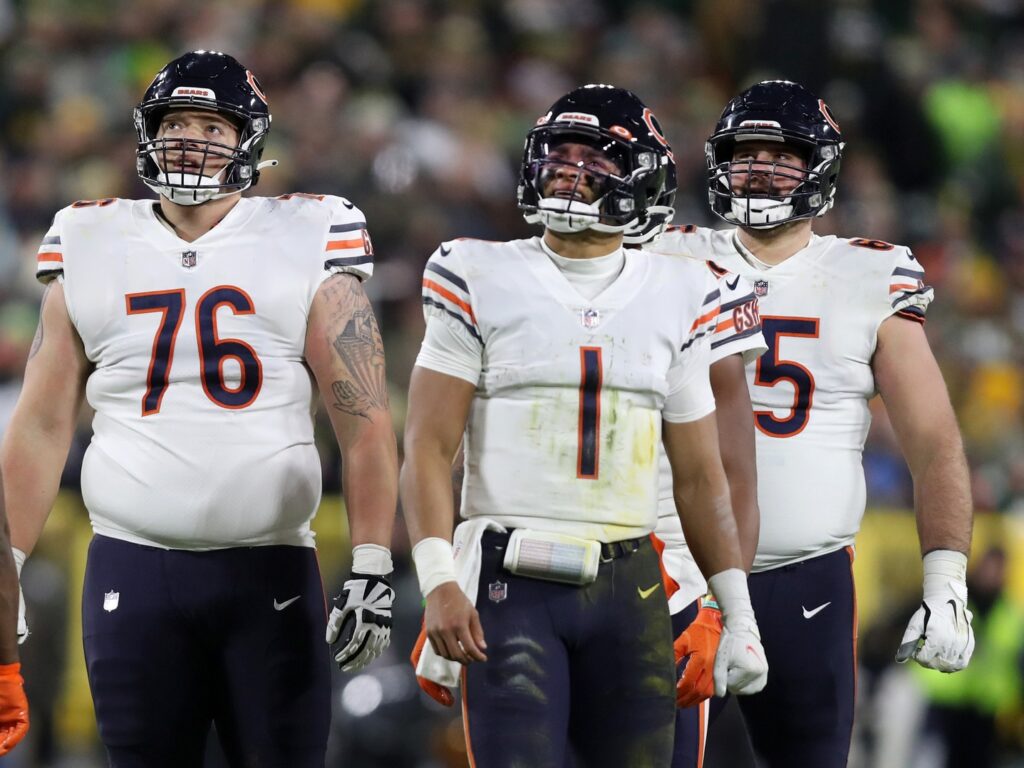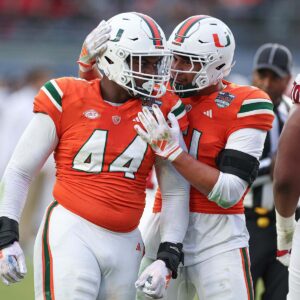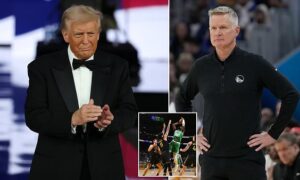
“Rest of the NFL Was Spot-On: Open secret! The Chicago Bears’ Offensive Line Stands as the Team’s Most Glaring Deficiency, Crippling Justin Fields’ Development and Derailing Offensive Potential”…
The Chicago Bears entered the 2024 NFL season with heightened expectations. After flashes of promise from quarterback Justin Fields in previous years, many believed the team was ready to take a leap forward.
Yet, one glaring issue has come into sharp focus: the offensive line. It’s a deficiency the rest of the NFL anticipated, and now, week by week, it is proving to be the Bears’ undoing.
The Core Problem: A Porous Offensive Line
In the NFL, success often starts in the trenches. The Bears’ offensive line, however, has consistently failed to meet even the most modest expectations. With breakdowns in both pass protection and run blocking, this unit has become the Achilles’ heel of an otherwise promising roster.
Despite a roster featuring talent at skill positions, including wide receiver D.J. Moore and tight end Cole Kmet, the offense has struggled to function cohesively due to the line’s inability to hold up against even average defensive fronts.
Pass Protection Woes
Justin Fields has endured relentless pressure this season. Statistically, Fields is among the most sacked quarterbacks in the NFL. While Fields’ playing style invites some pressure—he often extends plays and holds onto the ball longer to find big-play opportunities—there’s no denying that the offensive line has consistently failed to provide him with even a baseline level of protection.
Defensive coordinators around the league have exploited the Bears’ weak spots with blitz packages and edge rushers that overpower the tackles. Time and again, Fields has been forced to scramble, leading to hurried throws, turnovers, and injuries.
Even the most talented quarterbacks need a clean pocket to operate, and Fields has rarely had that luxury.
The Ripple Effect on the Running Game
An equally troubling aspect of the offensive line’s struggles has been its ineffectiveness in run blocking.
The Bears entered the season with high hopes for a dynamic rushing attack, but those hopes have largely been dashed. Running backs struggle to find daylight as defenders routinely penetrate the backfield before plays can develop.
This inability to establish a reliable ground game has rendered the Bears’ offense one-dimensional. Opposing defenses no longer respect the run, instead keying in on Fields and the passing game.
Without balance, the Bears’ offense has struggled to sustain drives, let alone put up points consistently.
Injuries and Lack of Depth
The Bears’ offensive line problems have been compounded by injuries. Several starters have missed significant time, exposing a lack of depth across the unit. The backups, often young and inexperienced, have been unable to step up, leading to a revolving door of mediocrity.
This lack of continuity has only worsened the line’s performance, as communication and chemistry—a critical aspect of offensive line play—have been severely lacking.
Front Office Shortcomings
While the players on the field shoulder some of the blame, the front office’s failure to adequately address the offensive line is perhaps the most glaring oversight.
Over the past several offseasons, the Bears have prioritized other positions in the draft and free agency while neglecting to invest heavily in the line.
High draft picks were spent on skill positions and defense, leaving the offensive line to be patched together with mid-round picks and low-cost free agents.
This strategy has backfired, as the unit’s poor play has neutralized the impact of investments in Fields and the skill positions.
Impact on Justin Fields
The offensive line’s struggles have profound implications for Justin Fields. Quarterbacks need time to develop in the NFL, both in terms of physical skills and mental processing. Fields has shown flashes of brilliance, but his growth has been stunted by constant pressure.
The lack of protection has forced Fields to rely on his athleticism to make plays, which, while exciting, is not sustainable in the long term. Worse, the constant hits he has taken could lead to injuries, as well as damage his confidence.
The Bears risk not only wasting a season but potentially derailing Fields’ career if they cannot provide him with a functional offensive line.
The Domino Effect on the Team
The offensive line’s deficiencies extend beyond Fields. Wide receivers struggle to execute their routes with timing disrupted by quick pressures. Running backs are hit in the backfield before they can accelerate.
Even the defense, often forced to spend extra time on the field due to the offense’s inability to sustain drives, has felt the effects. Football is a team sport, and the offensive line’s failure has had a cascading impact on all phases of the game.
Fixing the Problem: A Path Forward
If the Bears hope to turn things around, addressing the offensive line must be their top priority. This will require a multi-pronged approach:
1. Free Agency: The Bears need to target proven veterans who can provide immediate upgrades. While this may require significant financial investment, it is a necessary step to protect their franchise quarterback.
2. Draft Prioritization: The front office must focus on selecting high-upside offensive linemen in the early rounds of the NFL Draft. Building through the draft ensures long-term stability and allows the team to develop talent tailored to its system.
3. Coaching and Development: Beyond acquiring talent, the Bears must invest in coaching that can develop linemen and maximize their potential. This includes hiring experienced offensive line coaches and implementing a system that plays to the strengths of the personnel.
4. Continuity: The constant shuffle of players has hampered the line’s ability to gel. Establishing a core group of starters and allowing them to build chemistry over time is crucial.
Lessons from Around the NFL
The rest of the NFL saw this coming because many teams have gone through similar struggles. Teams like the Kansas City Chiefs and Philadelphia Eagles have shown how investing in the offensive line can transform an offense.
The Bears need to take a page from these franchises’ playbooks and recognize that success starts up front.
Conclusion: A Critical Crossroads
The Bears find themselves at a critical juncture. The offensive line’s deficiencies are not just holding the team back in the short term—they’re jeopardizing the future of the franchise, particularly Justin Fields.
The rest of the NFL was right to doubt this unit, and now the Bears must prove they are capable of addressing the issue.
If they fail to act decisively, the Bears risk squandering their potential and remaining stuck in a cycle of mediocrity. Conversely, if they commit to building a competent offensive line, they can unlock the full potential of Fields and the offense, setting the stage for sustained success. For the Bears, the path forward is clear; the question is whether they will take it.





